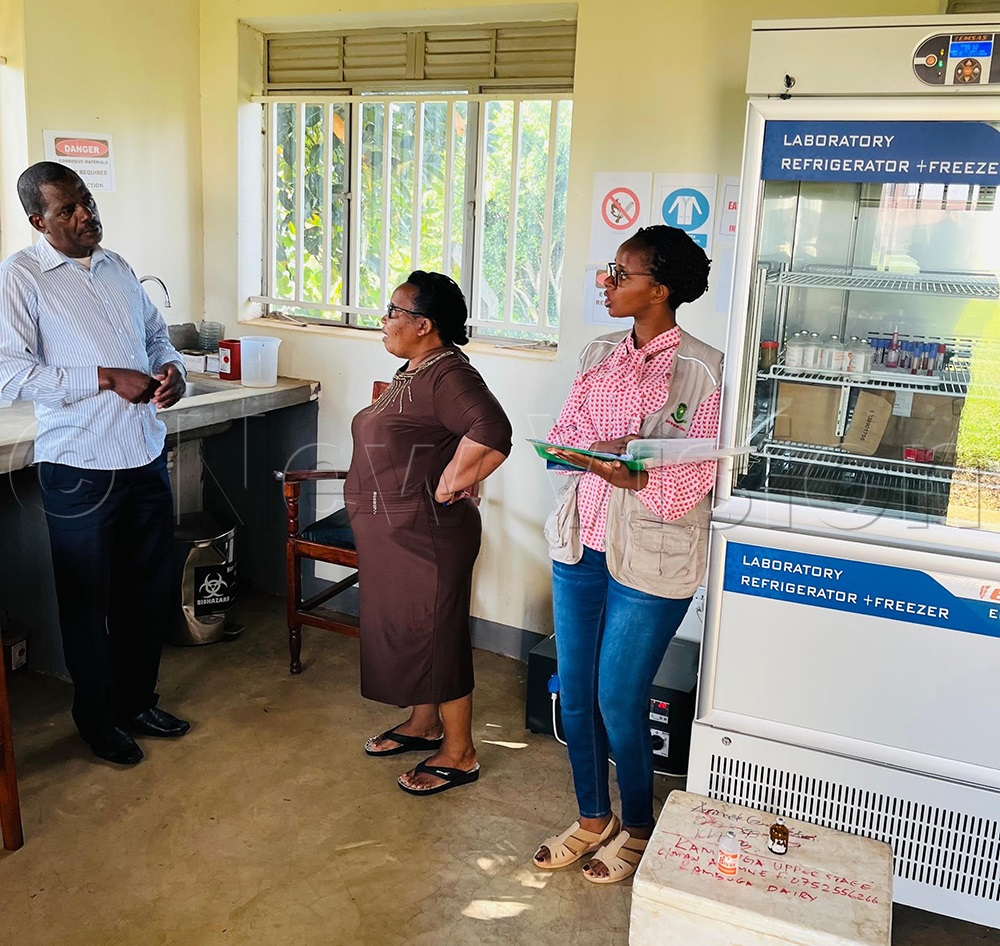Agric. & Environment
NDA destroys over 1.8 million doses of animal vaccines
The caution followed the recent findings during the NDA field assessments on cold chain compliance conducted in different parts of the country this year, which discovered that the quality of vaccine storage in many public and private veterinary drug facilities in districts is lacking.
Some vaccines were found stored with other products like fruits and sodas which result in contaminations. NDA discourages this and called for adherence to the national standards. (Credit: Abdulkarim Ssengendo))
By: Abdulkarim Ssengendo, Journalists @New Vision
____________________
The National Drug Authority (NDA) has cautioned the general public and private veterinary vaccine cold chain facilities across the country to strictly adhere to the national standards for vaccine storage and handling.
The caution followed the recent findings during the NDA field assessments on cold chain compliance conducted in different parts of the country this year, which discovered that the quality of vaccine storage in many public and private veterinary drug facilities in districts is lacking.
NDA officials showing the recommended vaccine laboratory refrigerator. (Credit: Abdulkarim Ssengendo))
The findings identified issues that included poor infrastructure and inadequate cold storage equipment, use of domestic instead of pharmaceutical-grade refrigerators, irregular temperature control and monitoring in most parts of the country.
Other issues discovered that called for immediate action include frequent power outages without a reliable backup. During the field assessment National Drug Authority (NDA) destroyed over 1.8 million doses of animal vaccine.
Most of these vaccines were impounded in western and eastern regions, which were dominated by high quantities of the impounded vaccines. The areas have a high animal population.
The NDA Manager, Public Relations Officer, Abiaz Rwamwiri, explained that the destroyed vaccines were "inappropriately stored "
Rwamwiri lamented that many veterinary vaccine handling facilities are using domestic refrigerators instead of the pharmaceutical ones.
Storing vaccines at irregular temperatures, while the frequent power outages without backup have all resulted in vaccine spoilage and reduced efficacy in these areas, Rwamwiri added.
He called for proper cooperation by all stakeholders in the animal health chain.